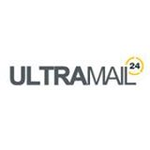Description

SoftTechLab Bulk Mailer

MailCloud
Comprehensive Overview: SoftTechLab Bulk Mailer vs MailCloud
To provide a comprehensive overview of SoftTechLab Bulk Mailer and MailCloud, let's break down the requested areas: primary functions and target markets, market share and user base comparison, and key differentiating factors.
SoftTechLab Bulk Mailer
a) Primary Functions and Target Markets:
- Primary Functions:
- Mass Email Distribution: Enables users to send a large volume of emails simultaneously.
- List Management: Tools to manage subscribers, segment lists, and maintain clean lists.
- Tracking & Reporting: Real-time analytics on delivery rates, opens, clicks, and bounces.
- Personalization: Tools to customize emails for individual recipients.
- Automation: Support for creating automated email sequences and campaigns.
- Target Markets:
- Small to Medium Businesses (SMBs) looking for cost-effective email marketing solutions.
- Marketing Agencies needing bulk mailing capabilities.
- E-commerce platforms aiming to promote products through newsletters.
- Event Organizers coordinating invitations and updates.
b) Market Share and User Base:
SoftTechLab Bulk Mailer primarily caters to smaller businesses and agencies. Its market share might not be as significant compared to major players in the email marketing industry like Mailchimp or Constant Contact, as it appeals to a niche segment that needs bulk sending capabilities without sophisticated features.
c) Key Differentiating Factors:
- Focus on Bulk Sending: Unlike some comprehensive platforms, it prioritizes the ability to send large volumes efficiently.
- Cost-Effectiveness: Attracts businesses with smaller budgets requiring bulk services.
- Ease of Use: Simplified interface for businesses that need straightforward bulk mailing without advanced features.
MailCloud
a) Primary Functions and Target Markets:
- Primary Functions:
- Comprehensive Email Marketing: Features include template creation, segmentation, and advanced analytics.
- CRM Integration: Seamless integration with customer relationship management systems to enhance targeting and personalization.
- Personalization and Dynamic Content: Advanced tools to create dynamic email content based on user behavior and preferences.
- Multichannel Campaigns: Support for campaigns across email, SMS, and social platforms.
- Target Markets:
- Medium to Large Enterprises utilizing integrated marketing solutions.
- Corporations focused on data-driven marketing strategies.
- Digital Marketing Companies seeking robust campaign management tools.
b) Market Share and User Base:
MailCloud, with more extensive features, aims at larger businesses and possibly holds a larger market share in comparison to SoftTechLab Bulk Mailer. It appeals to firms needing intricate marketing capabilities beyond simple email dispatch.
c) Key Differentiating Factors:
- Integration Capabilities: Strong focus on CRM and third-party software integration.
- Data-Driven Tools: Emphasizes analytics and behavioral targeting to enhance campaign effectiveness.
- Multichannel Approach: More than just emails, it supports diverse advertising channels.
Comparison and Conclusion:
Both SoftTechLab Bulk Mailer and MailCloud serve the email marketing sector but cater to distinct needs and markets. The Bulk Mailer is ideal for businesses needing efficient bulk email deployment at low costs, while MailCloud serves organizations looking for sophisticated multi-channel and data-integrated solutions. Their market shares differ, with MailCloud potentially having a larger footprint in companies seeking comprehensive marketing software. The choice between the two depends on business size, budget, and marketing strategy complexity.
Contact Info

Year founded :
Not Available
Not Available
Not Available
Not Available
Not Available

Year founded :
2000
+886 2 2553 2000
Not Available
Taiwan
Not Available
Feature Similarity Breakdown: SoftTechLab Bulk Mailer, MailCloud
To provide a detailed feature similarity breakdown for SoftTechLab Bulk Mailer and MailCloud, let's address each point individually:
a) Core Features in Common:
-
Email Campaign Management:
- Both platforms offer robust tools for creating, managing, and deploying email campaigns.
-
Contact Management:
- They provide features to manage and import contact lists, segment subscribers, and manage unsubscribe lists.
-
Template Designs:
- Users can choose from a variety of customizable email templates to suit their branding needs.
-
Automation:
- Automation features allow scheduling emails, setting up drip campaigns, and automating responses based on user actions.
-
Analytics and Reporting:
- Both tools include detailed analytics to help users track email open rates, click-through rates, and overall campaign performance.
-
Personalization:
- Options to personalize emails using merge fields and dynamic content are available in both products.
-
Integration Capabilities:
- They both offer integration with popular CRM systems and other third-party applications.
b) User Interface Comparison:
-
SoftTechLab Bulk Mailer:
- Known for its intuitive and user-friendly interface, which is designed to be straightforward for beginners while comprehensive enough for advanced users. The layout focuses on simplicity with drag-and-drop features easily accessible.
-
MailCloud:
- Has a sleek and modern UI with more emphasis on customization and visual appeal. It offers a slightly steeper learning curve compared to SoftTechLab but provides more advanced UI elements for those familiar with email marketing platforms.
c) Unique Features:
-
SoftTechLab Bulk Mailer Unique Features:
- AI-driven Content Suggestions: Offers AI tools to help suggest content improvements or subject lines to optimize engagement.
- Comprehensive A/B Testing: Provides more detailed options for A/B testing campaigns, allowing for testing of multiple variables at once.
-
MailCloud Unique Features:
- Advanced Segmentation: Allows for highly specific audience segmentation based on behavioral data and other complex criteria.
- Real-time Collaboration: Offers features that enable team members to collaborate on email campaigns in real-time, making it easier for teams to work together remotely.
- Enhanced Deliverability Tools: It includes advanced tools to monitor and increase email deliverability rates, such as spam testing and ISP feedback loops.
In summary, while both platforms share many core email marketing features, SoftTechLab Bulk Mailer focuses on user-friendliness and AI integration, while MailCloud distinguishes itself with advanced segmentation and collaboration features. The choice between these tools would largely depend on the specific needs and technical competencies of the user or team.
Features

Not Available

Not Available
Best Fit Use Cases: SoftTechLab Bulk Mailer, MailCloud
SoftTechLab Bulk Mailer and MailCloud are tools designed to cater to diverse email marketing needs, each with its unique strengths and best fit use cases. Here's how they can be effectively utilized across different business scenarios and industry verticals:
SoftTechLab Bulk Mailer
a) Best Fit Use Cases
- Types of Businesses/Projects:
- Small to Medium Enterprises (SMEs): These businesses often require a straightforward and cost-effective solution for reaching out to a large customer base without the complexities of more advanced features that are not necessary for their scale.
- E-commerce Platforms: For businesses that need to send out regular communications such as newsletters, promotional offers, or order confirmations in high volume.
- Non-Profits and Educational Institutions: Organizations looking to maintain regular contact with donors, volunteers, or students to send newsletters, updates on events, or fundraising initiatives.
- Startups: Companies that are in the growth phase and need to quickly escalate their customer engagement through email marketing without significant upfront investment in complex infrastructures.
MailCloud
b) Preferred Scenarios
- Scenarios:
- Large Enterprises with Complex Segmentation Needs: Ideal for businesses that require sophisticated targeting and personalized email campaigns across different customer segments.
- Marketing Agencies: Agencies that manage multiple client campaigns simultaneously and require high deliverability rates, detailed analytics, and automation capabilities.
- Global Corporations: Companies operating in various regions needing to handle large email volumes with speed, consistency, and compliance with different international regulations.
- Dynamic Content Needs: Businesses that focus on dynamic content and personalization at scale to improve customer engagement rates and campaign effectiveness.
Catering to Different Industry Verticals and Company Sizes
- Small and Medium Enterprises (SMEs):
- SoftTechLab Bulk Mailer is particularly useful for SMEs, providing essential functionalities without overwhelming them with complex features. It's user-friendly and cost-effective, making it ideal for these environments.
- Large Enterprises:
- MailCloud offers more advanced features like high-level analytics, automation, and segmentation, making it suitable for larger companies that require detailed insights and sophisticated marketing strategies.
- E-commerce and Retail:
- Both platforms can be used effectively, but MailCloud’s personalized targeting is particularly advantageous for e-commerce businesses aiming for high customer engagement and conversion rates.
- Non-Profits and Educational Institutions:
- SoftTechLab Bulk Mailer is suitable, providing them with an easy-to-use system to maintain communications without technical barriers or high costs.
By understanding the strengths of SoftTechLab Bulk Mailer and MailCloud, businesses can select the right tool that matches their specific needs and scale, ensuring they maximize their email marketing efforts effectively across different sectors and company sizes.
Pricing

Pricing Not Available

Pricing Not Available
Metrics History
Metrics History
Comparing undefined across companies
Conclusion & Final Verdict: SoftTechLab Bulk Mailer vs MailCloud
To provide a conclusion and final verdict for SoftTechLab Bulk Mailer and MailCloud, let's evaluate each in terms of their value proposition, pros and cons, and provide specific recommendations for users deciding between the two.
a) Best Overall Value:
MailCloud tends to offer the best overall value for businesses seeking a more comprehensive and scalable email marketing solution. It often comes with advanced features that support not just bulk mailing but also detailed analytics, segmentation, and integration capabilities with other marketing tools. This makes it more suitable for companies looking to harness data-driven insights and personalize their email marketing efforts.
b) Pros and Cons:
SoftTechLab Bulk Mailer:
Pros:
- Cost-Effective: Generally offers a lower upfront cost, making it an attractive option for small businesses or startups with tight budgets.
- Simplicity: User-friendly interface that makes it easy to set up and start sending bulk emails quickly.
- Basic Features: Covers the essentials needed for bulk emailing without overwhelming users with complexity.
Cons:
- Limited Features: May lack the advanced features found in more comprehensive platforms, such as detailed analytics and A/B testing.
- Scalability Issues: As your business grows, you might find it doesn’t scale well with the increasing demand for more complex email marketing strategies.
- Integration Limitations: Could offer fewer integrations with other software or platforms you might be using.
MailCloud:
Pros:
- Advanced Features: Offers a wide range of features including detailed analytics, automation, segmentation, and personalization.
- Scalability: Well-suited for growing businesses due to its ability to handle large volumes of emails efficiently and sophisticated marketing campaigns.
- Integration Flexibility: Easily integrates with other marketing tools and platforms, enhancing its functionality and utility.
Cons:
- Higher Cost: Typically more expensive than basic bulk mailers, which can be a downside for businesses with smaller marketing budgets.
- Complexity: The wealth of features can be overwhelming for users new to email marketing or those with simpler needs, potentially requiring a learning curve.
c) Recommendations:
For users deciding between SoftTechLab Bulk Mailer and MailCloud, consider the following recommendations based on your needs and resources:
-
Budget-Conscious and Simplicity Seekers:
- If you are a small business or a startup with a focus on cost-efficiency and simplicity, SoftTechLab Bulk Mailer might be the better choice. It provides the essential tools for bulk mailing at a lower price point and with an easier learning curve.
-
Growth-Oriented and Feature-Driven:
- If your business requires advanced features, scalability, and integration with other marketing tools, MailCloud offers better long-term value. This is particularly relevant if your strategy involves detailed analytics, customer segmentation, and targeted campaigns.
-
Hybrid Approach:
- Consider starting with SoftTechLab Bulk Mailer to establish your basics in email marketing if you're at an early stage. As your company grows or your needs evolve, transitioning to MailCloud might better support your expanded requirements.
Ultimately, the decision boils down to evaluating your current needs, budget, and long-term strategic goals. Carefully assessing these factors will guide you to the right choice for maximizing your email marketing effectiveness.
Add to compare
Add similar companies




